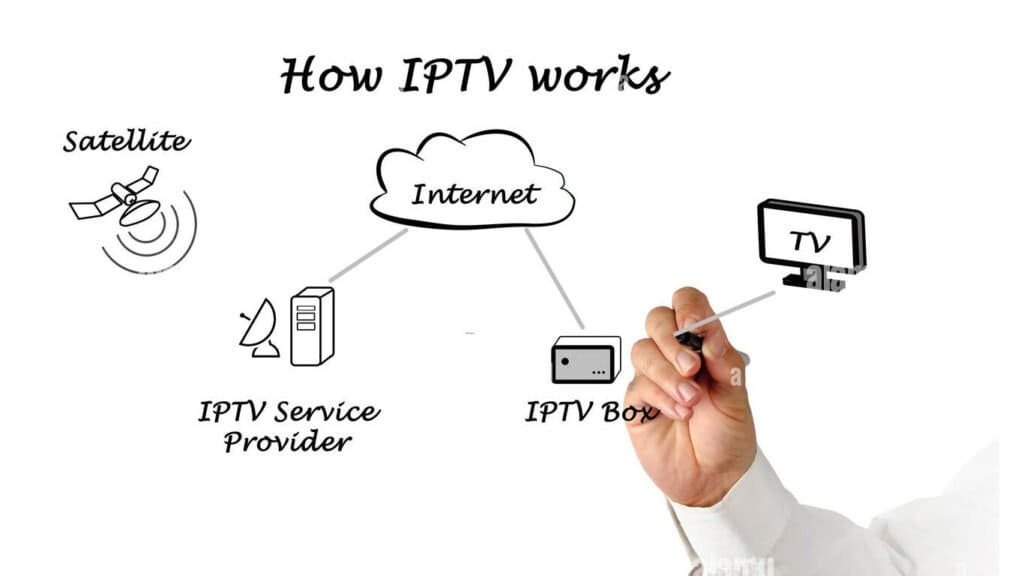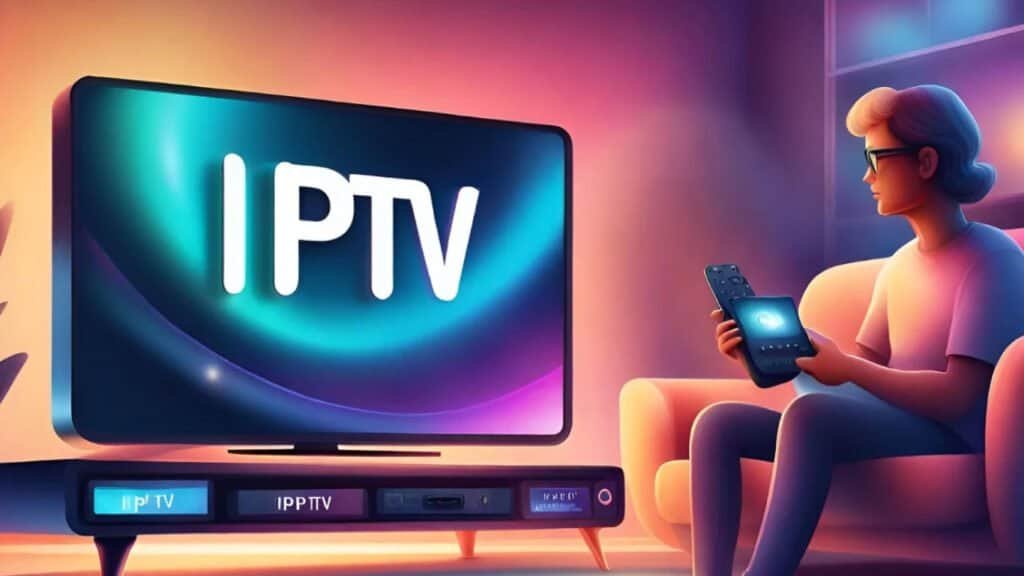Internet Protocol Television (IPTV) is revolutionizing the way viewers access and enjoy their favorite TV shows, movies, and live TV channels. Unlike traditional cable or satellite TV services, IPTV delivers video content through an internet connection, making it a more versatile and innovative option for consumers. Let’s dive into how IPTV works and why it has become a preferred choice for cord-cutters and TV enthusiasts alike.

How IPTV Works?
what is iptv stands for Internet Protocol Television, a system that uses the internet to transmit TV programs, movies, and other video content. Unlike broadcast TV, which uses antenna, cable, or satellite to distribute content, IPTV streams content over an IP network. This technology enables a seamless integration of live TV, video-on-demand (VOD), and interactive TV services, offering subscribers a more tailored viewing experience.
How IPTV Works
IPTV operates through a delivery network that includes broadband internet, set-top boxes, and servers to stream video and audio content to end users. Here’s a step-by-step breakdown of how IPTV functions:
- Content Acquisition: Media such as TV shows, movies, and live broadcasts are encoded into digital formats like MPEG or HDR.
- Content Storage: IPTV service providers use media servers to store and organize content for on-demand streaming.
- Delivery Network: The content is delivered to viewers through an IP network, such as DSL, fiber optics, or high-speed broadband, rather than traditional coaxial cables.
- Middleware and Protocols: Middleware acts as the user interface, while IP protocols manage the distribution of multicast or unicast streams for live TV and VOD services.
- Set-Top Boxes or Apps: End users access IPTV through set-top boxes, smart TVs, or streaming devices like Amazon Fire TV, Roku, or Apple TV.
Key Features of IPTV
- Live TV: Watch real-time broadcasts of live channels, including news, sports, and events.
- Video on Demand: Access a vast library of movies and TV shows whenever you want.
- Catch-Up TV: Replay missed programs using catch-up services.
- Interactive Features: Enjoy pause, rewind, and DVR functionality for greater control.
- Multi-Device Compatibility: Stream on smart TVs, mobile devices, laptops, and streaming devices.

Advantages Over Traditional Cable-tv or Satellite TV
- Flexibility: IPTV allows users to watch streamed content on-demand or subscribe to live TV service without being tied to rigid schedules.
- Cost-Effective: Many IPTV services offer pay-per-view options and free trials, making it a budget-friendly alternative to cable subscriptions.
- High Definition Quality: With options like HDTV and Ultra HD, IPTV provides excellent picture quality.
- No Cable-tv Box Required: Many IPTV setups eliminate the need for a traditional Cable and satellite box or antenna.

Popular IPTV Platforms and Devices
IPTV can be accessed through a wide range of devices and platforms, including:
- Smart TVs (e.g., Samsung, LG)
- Streaming Devices: Amazon Fire TV Stick, Chromecast, NVIDIA Shield
- Mobile Devices: Smartphones and tablets with apps like YouTube TV or Sling TV
- Gaming Consoles: PlayStation Vue and Xbox apps
- Web Browsers: Stream content directly from service provider websites.
Challenges of IPTV
While IPTV offers many benefits, it also faces some challenges:
- Bandwidth Requirements: Streaming high-quality video requires a robust internet connection to avoid buffering.
- Piracy Issues: Unauthorized streaming services can pose risks for both viewers and legitimate providers.
- Compatibility: Some older devices may not support modern IPTV services.
Future of IPTV
The demand for internet-based TV services is growing rapidly, with platforms like Netflix, HBO Now, and Amazon Prime Video leading the way. Advances in broadband technology, streaming media, and content delivery networks (CDNs) will continue to enhance the IPTV experience.
Choosing the Right IPTV Service
When selecting an IPTV service, consider the following factors:
- Subscription Cost: Compare monthly fees and premium channels options.
- Device Compatibility: Ensure your smart TV, media player, or streaming device supports the service.
- Content Variety: Look for diverse offerings, including live streams, documentaries, and original content.
- Reliability: A stable IPTV box with low latency ensures smooth playback.
Conclusion
how iptv works is reshaping how we consume TV and video content, offering unparalleled flexibility and choice for modern viewers. With features like live streaming, VOD, and catch-up TV, it’s no wonder IPTV is becoming the go-to solution for millions of subscribers worldwide. Whether you’re using a smart TV, Amazon Fire Stick, or Android TV box, IPTV services provide a customizable, high-quality experience perfect for the digital age.
FAQs
What devices support IPTV?
IPTV is compatible with smart TVs, set-top boxes, streaming devices, computers, and smartphones.
Is IPTV legal?
Yes, IPTV services are legal when provided by licensed operators. Illegal streams can lead to copyright violations.
How is IPTV different from streaming platforms like Netflix?
IPTV provides live TV and a broader selection of channels, while Netflix is focused solely on on-demand content.
What internet speed is needed for IPTV?
For smooth playback, a minimum speed of 10 Mbps is recommended, particularly for HD streaming.
Can IPTV replace traditional TV?
Yes, IPTV offers a more versatile and customizable alternative to traditional TV services.




